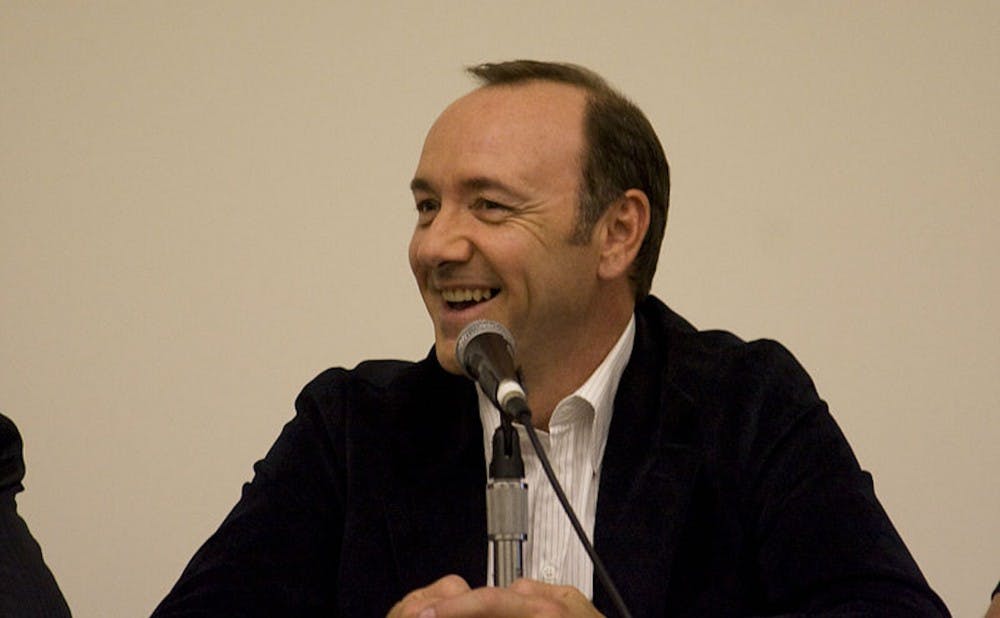The headlines come rolling, a tidal wave of buzz words and quotes and half-hearted condolences that ring hollow in the echo chamber of media news, in which the same stories — “celebrity comes forward with sexual assault story” — are produced without any action ever taken against the perpetrator of the assault. Victims are maligned and dismissed, while perpetrators go on to win Oscars and make millions. This dichotomy only amplifies the blasé reaction to sexual assaults on smaller scales; the media’s reluctance to dole out consequences for sexual predators impresses upon the public the belief that sexual violence is a petty crime for which the repercussions are minimal and that victims are self-absorbed and attention-seeking.
However, since the Harvey Weinstein scandal broke and scores of women took to social media to share their experiences with Weinstein, it has become increasingly difficult to shrug off the accusations as the hysterical cries of a few conceited celebrities. It was discovered that Weinstein had been paying off women for decades, which led to his expulsion from the Academy of Motion Picture Arts and Sciences. No sooner had the outrage over this scandal diminished than another story broke — Kevin Spacey had allegedly made sexual advances towards performer Anthony Rapp when Rapp was only fourteen years old. Another scandal, another victim, another celebrity whose true character has been revealed to a public accustomed to idolizing actors and producers.
Kevin Spacey has been in the industry since the 1980s and has covered every artistic base from theater acting to directing. He has two Oscars, a Golden Globe and a Tony. In 1999, his name was added to the Hollywood Walk of Fame. He should not be remembered for any of these awards or honors. Instead, Spacey should be remembered as a predator, a man now allegedly responsible for the assaults of several young men who have been emboldened not just by Rapp — who should be applauded for having the courage to come forward with this story and channel the trauma of his experience into fantastic performances — but by the recent shift in Hollywood regarding sexual crimes. The days of excuses like “that’s just how things were back then,” of blatant cover-ups, are finally ending, meaning action is being taken against these perpetrators to directly punish them for their behavior.
As with every scandal, the question of whether or not it is still ethical to consume content produced by these predators is raised. After all, the general public watches an alleged sexual predator on the presidential podium every night: why should they never rewatch “House of Cards” or commend Spacey’s performance in “American Beauty”? The issue lies in the context of these projects: Spacey’s lusting after a teenage girl in “American Beauty” has become exponentially more problematic knowing his real-life encounters with minors and therefore creates an atmosphere of unpleasant uncertainty, as the viewer wonders if Spacey took advantage of this role behind the scenes. Films, shows and productions that involve sexual predators should not be consumed if they still provide any form of revenue to the predator in question, and if they are consumed, the audience should view the entertainment critically. Even if nobody directly involved with the production was harmed by these predators, their crimes still taint every frame and this indelible presence should be recognized.
Most importantly, the survivors of these assaults need to be respected and their stories listened to in spite of prejudices or innate beliefs. The current system punishes people who come forward, fearing loss of revenue and harm towards linchpins of entertainment and production that have monopolized the industry. Even now, the Weinstein scandal has focused exclusively on how the revelations have affected Weinstein and his company; very little air time has been offered to the survivors. This oppressive atmosphere makes it incredibly difficult to come forward, with survivors worrying that they might lose credibility within their professional circle if they publicly accused Hollywood bigwigs, most of whom have cultivated personas that the public eagerly buys into without question.
Men create public images that portray them as goofy, harmless and moderate, which appeals to mainstream America and makes it difficult to reconcile their mild-mannered character with the notion of sexual predation. Meanwhile, women are often villainized or cast as “b----es” — it becomes easy to dismiss their accusations and to silence them with little room to explain themselves properly. Even male survivors like Rapp are ignored, with most coverage of the scandal referring to his comments only in passing or going so far as to question his relevance to the story when it is his narrative that matters the most. Support and space to express themselves should be granted to survivors, as it is their suffering that is most important. In the Spacey scandal, Rapp is the one who has had to cope with the trauma of being assaulted at the age of fourteen, while Spacey has the privilege of forgetting and going on to earn Hollywood’s affections. In order to change the system, the media needs to give a platform to Rapp’s story, not Spacey’s excuses.
The entertainment industry is changing for the better, but that progress is currently moving at a glacial pace. Until every predator is given the swift punishment he or she deserves, it is vital to continue offering support to victims and to remember that it does not matter how talented or generous a sexual predator is — sexual assault is sexual assault.
Get The Chronicle straight to your inbox
Signup for our weekly newsletter. Cancel at any time.

